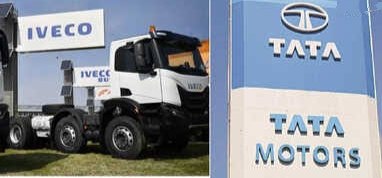Tata Motors, India’s celebrated automotive giant, has kicked off a transformative chapter in its global journey by reaching an agreement to acquire Italy-based Iveco Group for about 3.8 billion euros ($4.5 billion). This strategic, all-cash bid, recommended by the Iveco board, marks Tata’s most ambitious move since its landmark Jaguar Land Rover acquisition in 2008 and signals a bold reshaping of the global commercial vehicle landscape.
Introduction
In an announcement that set industry abuzz today, Tata Motors confirmed its intent to buy out Iveco’s core (non-defence) operations from Exor, the Agnelli family’s investment arm. The initiative carries multi-layered implications: from reinforcing Tata’s European foothold to intensifying the focus on future-oriented, cleaner commercial vehicles. Notably, the deal carves out Iveco’s defence segment, which will be spun off prior to the acquisition—ensuring that Tata Motors takes charge of all main operations minus the military business.
Key Developments in the Transaction
-
The all-cash offer values Iveco at €14.1 per share, translating to a total outlay of roughly €3.8 billion (approx. $4.5 billion).
-
Tata Motors will initially acquire a 27.1% stake from Exor and subsequently launch a tender offer for the shares held by minority stakeholders, aiming for total ownership of all non-defence operations.
-
The boards of both Tata Motors and Iveco formally reviewed and recommended the deal on Wednesday, July 30, 2025.
Strategic Rationale and Global Ambitions
-
With this move, Tata positions itself firmly as a global commercial vehicle heavyweight, expanding far beyond its home turf in India where it dominates the CV market.
-
The acquisition is not just geographic: it aligns Tata with leading European trends in electrification, green technology, and alternative fuels—fields where Iveco has already made significant progress.
-
Investors were cautious, however, as Tata’s shares slipped nearly 4% post-announcement, reflecting worries over integration risks, deal size, and Tata’s already intensive capital allocation to EV and regulatory initiatives.
Deal Structure and Exclusions
-
The deal, structured through a wholly owned Dutch subsidiary of Tata Motors, deliberately leaves out the lucrative defence business of Iveco, which accounts for key partnerships with European military agencies.
-
Iveco’s defence arm—including the IDV and ASTRA brands—will be separated and likely spun off or sold, with the net proceeds remaining with Exor and current Iveco shareholders.
-
Iveco’s board has stated that regulatory approvals and a detailed implementation plan for the separation will ensue in parallel with consummation of the Tata deal.
Implications for Stakeholders
-
Tata expects the integration to sharply enhance its presence in Europe and bring new synergies in product development, manufacturing, and distribution.
-
For Exor and the Agnelli family, divesting the core commercial vehicle business at a premium allows a strategic refocusing on high-tech and luxury investments in their portfolio.
-
Market analysts are split, with some highlighting the long-term benefits for Tata’s global ambitions, and others flagging potential short- to medium-term financial pressures, especially given Tata’s other big-ticket investments and transition to electric mobility.
Sector Impact and Next Steps
-
The transaction immediately propels Tata Motors into the league of Europe’s commercial vehicle majors, now in direct competition with the likes of Volvo, Daimler, and Traton.
-
Iveco shareholders, except those tied to defence operations, will participate in the tender offer at significant premium.
-
The formal separation of defence assets is set for completion by end-2025, with the Tata-Iveco closing contingent on several regulatory and antitrust clearances across Europe and India.
Conclusion
This historic acquisition signifies Tata Motors' determined leap into the top tier of global truck and bus manufacturers. While challenges loom, especially in harmonizing international operations and managing capital flows, today’s move decisively redefines Tata’s global ambitions—and promises to trigger further consolidation in an industry now at the gate of zero-emission transformation.
Source: The Economic Times, Reuters, Business Standard
